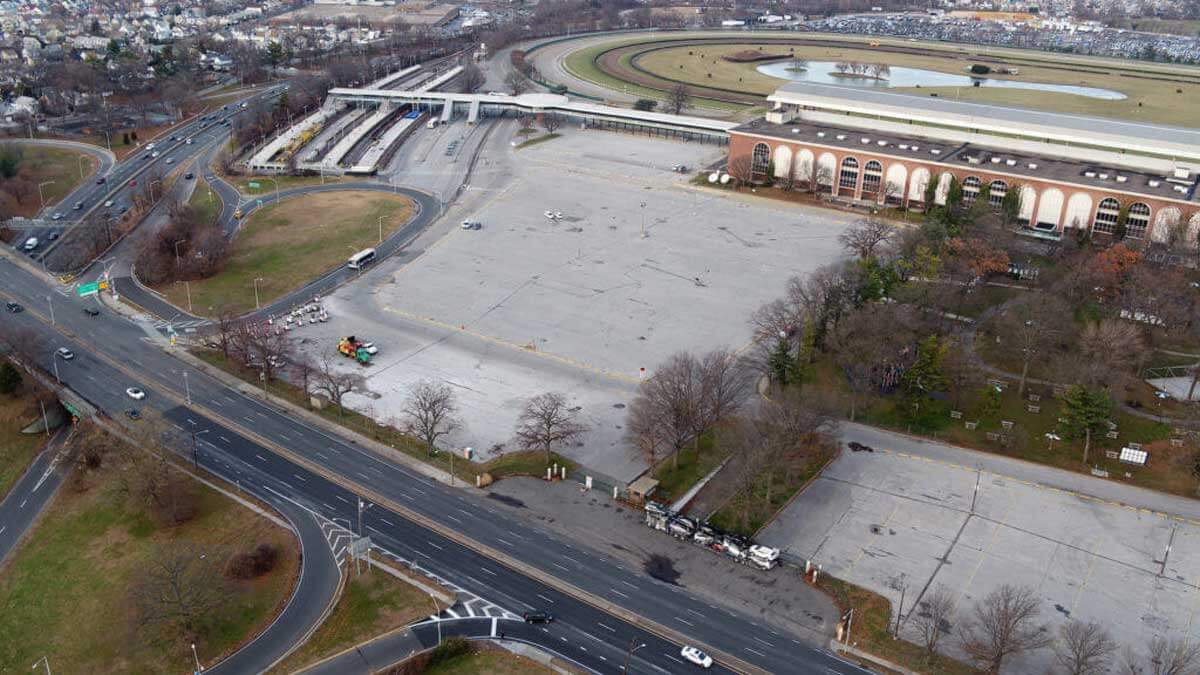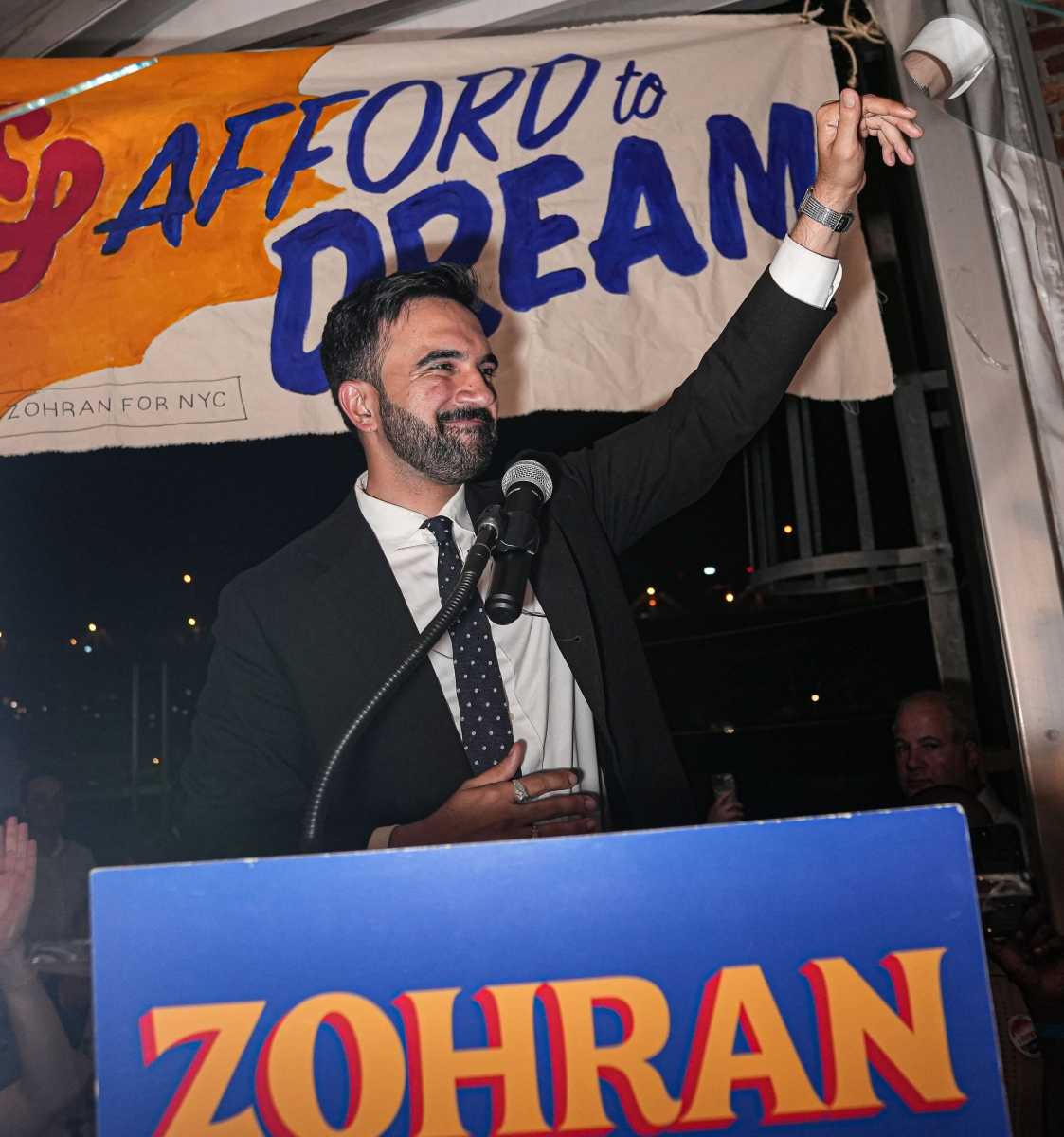As work on the Belmont Park Redevelopment Project is slated for later this year, a northeast Queens lawmaker is calling on the state to consider full-time public transportation at the nearby Long Island Rail Road train station.
Councilman Paul Vallone submitted official testimony to Empire State Development and New York Arena Partners on Feb. 22 outlining potential congestion concerns and remedies that would directly impact his constituents. In his testimony, Vallone urged the stakeholders to establish “a firm traffic-mitigation plan” to ensure that Queens residents could maintain a stable quality of life.
“I represent Auburndale, Bay Terrace, Bayside, Beechhurst, College Point, Douglaston, Flushing, Little Neck, Malba and Whitestone, neighborhoods just a few miles away from Belmont Park,” Vallone’s testimony reads. “As a lifelong New York Islanders fan, I am personally thrilled that the team will be returning to their original home of Nassau County … [However], without the proper forethought, this project could negatively affect quality of life for the thousands of my constituents who depend on the active road and railways surrounding Belmont Park to commute every day.”
The Belmont Park Redevelopment Civic and Land Use Improvement Project, as it is officially known, is a $1.18 billion transformation of surplus land into a new home for the New York Islanders hockey team. Once complete, the site will include a 19,000-seat hockey stadium, a hotel and several commercial facilities adjacent to the existing Belmont Track. At peak attendance, the racetrack and surrounding area will accommodate 60,000 to 100,000 people according to information from Vallone’s office.
“The implementation of full-time, east-to-west service with a Park and Ride option would provide the proper relief to the inevitable influx of traffic on the already overloaded Cross Island Parkway, a major artery that runs along Belmont Park and throughout northeast Queens,” Vallone’s testimony continues. “The many constituents in my district who traverse this roadway on a daily basis can attest to regular congestion. Implementing full-time train service at the Belmont station would properly mitigate the influx of thousands more individuals who will seek to get to and from this hub on a daily basis. Ensuring the station is at full operation by the time this development project is completed is essential.”
A report erroneously said that developers were halting the project to accommodate for an “extended environmental review” but ESD confirmed that they expected that work on the project is on track to begin in the second half of 2019. They added that they have been working on full-time transportation to Belmont as well as traffic mitigation efforts to the area.
“The Belmont Project will generate millions in tax revenue for Nassau County and Elmont Schools every year, upgrade Elmont Road Park, create thousands of jobs, and bring The Islanders back to Long Island. In February, we reiterated the same timeline we’ve had since the beginning of this project, and we still anticipate final public approval in the second quarter of 2019,” said ESD spokesperson Jack Sterne. “We have heard community concerns about transit and traffic loud and clear – and we continue to explore the possibility of a full-time train station at Belmont, in addition to traffic mitigation efforts. We look forward to continuing to work with Councilmember Vallone, his elected colleagues, community leaders, transportation agencies, and local businesses to make this transformative project a success.”
Back in December, City Comptroller Scott Stringer and Councilman Barry Grodenchik expressed similar sentiments about the increased traffic for neighboring Queens residents.
The lawmakers addressed a letter to Department of Transportation Commissioner Polly Trottenberg urging the agency to conduct a traffic study of potential impacts. Stringer and Grodenchik suggested solutions including a residential parking program that would restrict curbside parking to residents during certain times of day.
The Metropolitan Transit Authority told a publication that they were exploring options to extend train services to Belmont and estimated that full time service would cost “at least $300 million.”
Story updated on March 6 at 3:53 p.m.



































